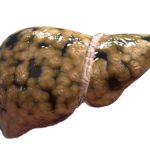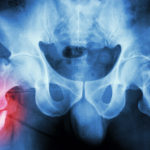By David Blyweiss, M.D., Advanced Natural Wellness
September 30, 2015
- A vicious cycle that compromises blood flow
- What do telomeres have to do with it?
- How to stop the cycle in its tracks
The first thing that probably pops into your head when you think of poor red blood cell production is anemia. And, yes, it’s true. People with anemia have a low red blood cell count, or RBC. Many of these folks are low on iron, so it’s pretty easy to fix the problem.
But there’s another cause of low RBC you likely haven’t heard about. And it can create a pretty vicious cycle that could cause you to age prematurely. At the same time, it also increases your chances of heart attack, stroke, dementia and more.
Now, I’ve talked about telomeres before. These are the protective DNA caps on the end of your chromosomes that shorten each time your cells divide. The shorter they get, the more quickly you age.
Well, it turns out shorter telomeres can decrease your RBC. This can be quite a problem, because your red blood cells are what deliver fresh oxygen to all of the tissue and organs in your body. If you’re not producing enough of them, you could be starving your body of much-needed oxygen and nutrients it needs to thrive.
Red blood cells also transport and release nitric oxide (NO) throughout your entire cardiovascular system. Now, if you’re a regular reader of Advanced Natural Wellness, you know how important this gas is to your circulation.
NO is what keeps the inner lining of your blood vessels relaxed so blood can flow freely all through your body. Without enough nitric oxide, your blood has to pump harder. This results in high blood pressure that damages your arterial walls and opens the door to plaque build-up.
So, not only do you have a shortage of red blood cells, you also end up with compromised blood flow. It’s no wonder patients with anemia often have problems with poor circulation!
Open your arteries, improve blood flow for a new health miracle...
Did you know your circulatory system has over 60,000 miles of arteries, veins and other blood vessels, if stretched end to end?
But as you age, your blood vessels undergo changes, which may cause them to stiffen, thicken and get clogged.
GOOD NEWS! Doctors have now identified a “Miracle Molecule” inside your arteries that helps OPEN your arteries and IMPROVE blood flow.
It’s what Dr. Valentin Fuster calls it, "One of the most important discoveries in the history of cardiovascular medicine."To you, that means...
- Healthy blood pressure
- Sharper mind and memory
- Skyrocketing energy and muscular strength
- Increased pleasure and passion in the bedroom
- Improved circulation to every cell and organ in your body
Go here to discover a new natural way to significantly boost the levels of this miracle molecule in YOUR body NOW!
A low RBC also has ties to heart failure, microvascular complications, and dementia.
Let’s talk about how all of this ties together, what it means for you, and what you can do about it…
You can see what’s happening here, right?
Shortened telomeres reduce red blood cell count. This, in turn, lowers activity of nitric oxide. So, things are already running a little sluggishly.
Now here’s the real humdinger: Lower NO levels also reduce telomerase activity, which may cause your telomeres to shorten even further. This creates a never-ending cycle of shortened telomeres, lower RBC, lower NO… which causes even shorter telomeres, lower RBC and decreased NO, and so forth.
As if that’s not bad enough, shortened telomeres affect the size of your red blood cells. It makes them bigger, resulting in a condition called macrocytosis. The effect shortened telomeres have on red blood cell size is actually equivalent to smoking or drinking.
A regular CBC blood test will show the size of your red blood cells. But mild macrocytosis is very often overlooked as not being important.
If left unchecked, macrocytosis can lead to fatigue, difficulty concentrating, paleness, dizziness and shortness of breath. In severe cases it can result in confusion, dementia, poor balance, depression and numbness in the arms and legs.
The World's Quickest Solution for Ending Prostate and Urinary Misery
This has recently been revealed to be one of the only real breakthroughs in prostate health.
The seeds of a strange fruit (sometimes called "Chinese Apples") hold powerful phytonutrients that are a revolution in prostate health.
In fact, UCLA and Veterans Administration research have now proved this to be true.
Not only that, but it may be the worlds quickest solution for ending prostate misery.
Simply stated, these phytonutrients represent a huge step beyond beta sitosterol, saw palmetto, and other phytosterols alone.
Simply click HERE if you want to have fast prostate relief...restful, uninterrupted sleep...no more constant "urges to go"...enhanced virility...and optimal prostate support for life.
Thankfully, there are ways to extend your telomeres and stop the cycle in its tracks. Here’s the advice I give to my patients…
Omega-3 fish oil may be one of the most important nutrients for telomere support. It not only slows down telomere shortening, it also helps to lengthen them. And this can happen in as little as four months. Look for a high-quality fish oil supplement that contains oil from fresh, wild-caught, deep-sea fish. And make sure it’s been molecularly distilled and tested for purity (i.e., no mercury). Aim for 1200 mg. of EPA and 800 mg. of DHA daily for telomere lengthening.
Look for a cold-water fish oil supplement that contains at least 360 mg. of DHA and 540 mg. of EPA.
Folic acid and Vitamin B12 supplements can both keep your telomeres longer than if you don’t supplement with them. Deficiency in these nutrients is also a common cause of macrocytosis. I suggest 800 mcg of folic acid and 500 to 1,000 mcg of B12 daily.
Green tea is another big winner when it comes to your telomeres. People who drink three cups of green tea a day have telomeres that are about five years younger than those who don’t drink it.
If you don’t like green tea, you can always take it in supplement form. Look for one that contains Epigallocatechin Gallate (EGCG) and is standardized to contain 60% polyphenols. For the most impact, set a goal of 240 to 320 mg of polyphenols every day.
Vitamin D deficiency is common here in the U.S. If your levels are low, your telomeres could be five years older than they should be. If you choose to supplement, look for a formula that contains the vitamin D3, also known as cholecalciferol. I suggest 2,000 IU daily and up to 5,000 IU if you’ve been tested as deficient.
Multi-vitamins normally include folic acid, vitamin B12 and vitamin D, which I mentioned above. This may explain why women who take a daily multivitamin have telomeres that are about 10 years younger than women who don’t.
Adopting a Mediterranean-style diet and getting moderate physical activity can both help protect your telomeres from shortening, too. And to make sure your NO levels are up to par, look for a plant-based NO booster that has beetroot juice as its main ingredient. These plant-based formulas vary from one manufacturer to another, so make sure to compare ingredients and dosage information.
Sources:
De Meyer T, et al. “Lower red blood cell counts in middle-aged subjects with shorter peripheral blood leukocyte telomere length.” Aging Cell. 2008 Oct;7(5):700-5.
Kozlitina J, et al. “Red blood cell size is inversely associated with leukocyte telomere length in a large multi-ethnic population.” PLoS One. 2012;7(12):e51046.
Petra Kleinbongard, et al. “Red blood cells express a functional endothelial nitric oxide synthase.” Blood, 2006 Apr;107 (7)
Kiecolt-Glaser JK, et al. “Omega-3 fatty acids, oxidative stress, and leukocyte telomere length: A randomized controlled trial.” Brain Behav Immun. 2013 Feb;28:16-24.
Moores CJ, et al. “Telomere dynamics: the influence of folate and DNA methylation.” Ann N Y Acad Sci. 2011 Jul;1229:76-88.
Paul L, et al. “Telomere length in peripheral blood mononuclear cells is associated with folate status in men.” J Nutr. 2009 Jul;139(7):1273-8.
Chan R. “Chinese tea consumption is associated with longer telomere length in elderly Chinese men.” British Journal of Nutrition. 2010;103:107-113.
Liu JJ, et al. “Plasma vitamin d biomarkers and leukocyte telomere length.” Am J Epidemiol. 2013 Jun 15;177(12):1411-7.
Richards JB, et al. “Higher serum vitamin D concentrations are associated with longer leukocyte telomere length in women.” Am J Clin Nutr. 2007 Nov;86(5):1420-5.
Xu Q, et al. “Multivitamin use and telomere length in women.” Am J Clin Nutr. 2009 Jun;89(6):1857-63. Epub 2009 Mar 11.
Dean Ornish, M.D. et al. “Effect of comprehensive lifestyle changes on telomerase activity and telomere length in men with biopsy-proven low-risk prostate cancer: 5-year follow-up of a descriptive pilot study.” The Lancet Oncology, Early Online Publication, 17 September 2013.
Cherkas LF, et al. “The association between physical activity in leisure time and leukocyte telomere length.” Arch Intern Med. 2008 Jan 28;168(2):154-8.






